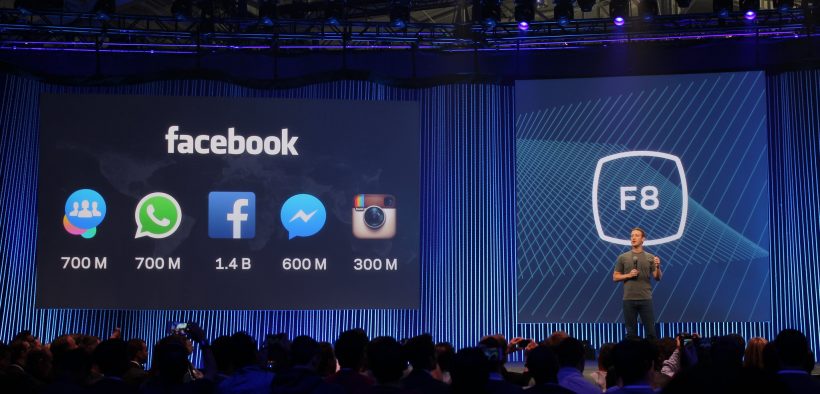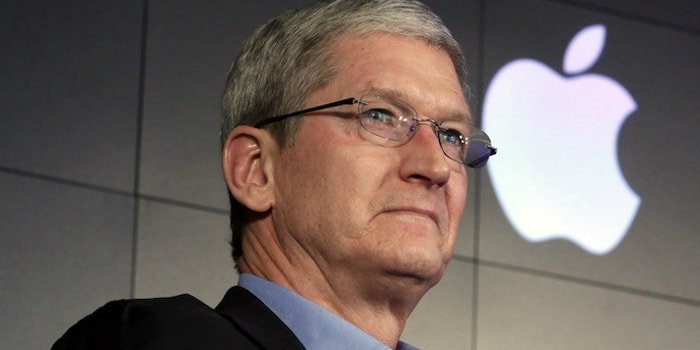Apple, Google, Facebook and Amazon Facing Antitrust Investigations

“This is about how do we get competition back in this space,” said Congressman David N. Cicilline of Rhode Island as he announced antitrust investigations into big tech.
The world of big tech was shaken up on Monday and over the weekend as reports came out that the Justice Department (DOJ) and the Federal Trade Commission (FTC) were pursuing antitrust investigations into “big tech” behemoths Apple, Google, Facebook and Amazon.
The tech shakeup began on Friday when the Wall Street Journal reported that the DOJ had been “laying groundwork” for an antitrust probe of Alphabet, Inc., Google’s parent company. When the stock market reopened on Monday, shares of Alphabet Inc. fell more than 7% before bouncing back and ending with a drop of 6.1% on Monday.
Following the Journal’s report was a report over the weekend from the Washington Post that included Amazon in the coming antitrust probes and then news on Monday that Facebook was also being investigated. Facebook shares fell 7% in response.

Apple CEO Tim Cook. February 2016. (Photo: Flickr iphonedigital)
Reuters added to the tech antitrust snowball with a report that the DOJ was also probing Apple.
The House Judiciary’s subcommittee on antitrust held a press conference on Monday to outline how the antitrust investigations would proceed. Over the next 18 months, the subcommittee will hold hearings with testimony from top tech executives and will issue subpoenas for internal corporate documents.
Heading the subcommittee is Chairman David N. Cicilline of Rhode Island who announced the investigation into the tech companies.
“This is about how do we get competition back in this space,” Cicilline said at the press conference.
“After four decades of weak antitrust enforcement and judicial hostility to antitrust cases, it is critical that Congress step in to determine whether existing laws are adequate to tackle abusive conduct by platform gatekeepers or whether we need new legislation to respond to this challenge,” Cicilline also said in a statement.
The committee will focus on three areas, according to Cicilline:
- Documenting competition problems in digital markets;
- Examining whether dominant firms are engaging in anti-competitive conduct; and
- Assessing whether existing antitrust laws, competition policies, and current enforcement levels are adequate to address these issues.
Big tech has gone from the glamour spotlight to the maligned spotlight in the last couple of years after multiple reports of privacy violations, monopoly power abuse, data leaks and a general distrust of tech companies have grown.
Big Tech Antitrust Troubles Brewing Everywhere
Germany began an antitrust investigation of Amazon last December after receiving multiple consumer complaints that the platform favors its own private label products over independent sellers. Germany is Amazon’s second largest market after the US. Amazon marketplace users in Germany who sell products on the site complained that the company uses its power to give its own product listings an unfair advantage.
In one example, clothing label Ella Moss sued Amazon for creating the private label Ella Moon. Ella Moss alleged that Amazon creates private label products that look like or are similarly named and priced as existing brands in an attempt to confuse costumers into buying Amazon’s private label products.
In another example of Amazon’s success with private-label, after just three years Amazon’s private label battery brand outearned both Energizer and Duracell in online sales. As a New York Times report revealed the success of Amazon’s battery line may be due to its marketplace manipulation. If a user asks Amazon’s Alexa to buy batteries, users are only presented with one option – to buy AmazonBasics batteries.
“I think there is a potential monopolization case against Amazon,” said Chris Sagers, an antitrust professor at the Cleveland-Marshall College of Law in Ohio, to the New York Times.
Facebook co-founder Chris Hughes recently published a New York Times op-ed calling for the break up of his former company, saying Zuckerberg’s power was unprecedented and un-American. Hughes also insisted the popular social media company break up Facebook, Instagram and WhatsApp.
In April, 4,000 documents leaked to NBC News showed that Zuckerberg shared Facebook user data to Zuckerberg’s personal friends or spent significant advertising money on Facebook.
Also in April, another privacy scandal hit Facebook when Business Insider discovered that the social media giant had amassed the emails of 1.5 million users without their consent when they opened accounts.
Women Take on Big Tech

Lina Khan (Screenshot of “Amazon and the Law” via New America), Margrethe Vestager (Photo by Johannes Jansson/norden.org), Elizabeth Warren (photo via Tim Pierce)
As Citizen Truth previously reported, three women have been at the forefront of pursuing antitrust oversight of big tech.
In the U.S. the most vocal critic of big tech’s monopoly power has been 2020 presidential candidate Elizabeth Warren. Warren announced a plan that would make it illegal for tech companies earning over $25 billion in revenue annually to simultaneously own a platform while competing on it.
In Europe, EU Commissioner Margrethe Vestager has brought competition cases to tech giants like Apple, Amazon and Google, punishing them with massive fines for abusing their market dominance.
As Peter Castagno wrote in his report for Citizen Truth, “both Vestager and Warren have influenced Lina Khan, a 30-year-old antitrust scholar who rose to prominence after her academic paper, Amazon’s Antitrust Paradox, went viral while she was still at Yale Law School. Khan’s work challenged the mainstream view of monopolies — that they were justified by lowering prices for consumers — by illuminating the hidden, long-term negative effects of concentrated power. In Big Tech’s case that means using predatory strategies to undermine competitors and consumer choice.”
DOJ, FTC Have a Major Challenge Ahead
While the announcement of the DOJ and FTC investigations is a huge step forward for antitrust activists, the reality of pursuing antitrust cases is extremely challenging. Companies as large as Google, Facebook, Amazon and Apple have tremendous lobbying abilities. If you are as big as big tech is, you have a team of lawyers, lobbyists and employees in congressional districts all over the country ready to lobby on your behalf.
Antitrust investigations can also simply be dragged on until they are dropped. The government’s antitrust investigation of IBM lasted 13 years before it was dropped. The government went after Microsoft for 12 years before a settlement was finally approved. And while AT&T was broken up in the 80’s it took the government a decade to reach the mandate.
In a statement congressman Jerrold Nadler referenced the rich history of antitrust investigations:
“The open internet has delivered enormous benefits to Americans, including a surge of economic opportunity, massive investment, and new pathways for education online,” said Chairman Jerrold Nadler (D-NY).
“But there is growing evidence that a handful of gatekeepers have come to capture control over key arteries of online commerce, content, and communications. The Committee has a rich tradition of conducting studies and investigations to assess the threat of monopoly power in the U.S. economy. Given the growing tide of concentration and consolidation across our economy, it is vital that we investigate the current state of competition in digital markets and the health of the antitrust laws.”
















The deregulated, runaway capitalism installed by the Reagan gang has been on an unrelenting rampage ever since. The first results were the legalized embezzlements that were for public consumption euphemistically termed “S&L crisis”, [first] “banking crisis”, and “corporate accounting irregularities”. The further results notably include the “sub-prime crises” and the exponential growth in wealth, power, and outlandishly inordinate social-political influence of such huge virtual monopolies as Disney, Amazon, Facebook. Wall Street is the world capital of greed and power-madness, but the tentacles of this detestable octopus extend to places like London and Tel Aviv.